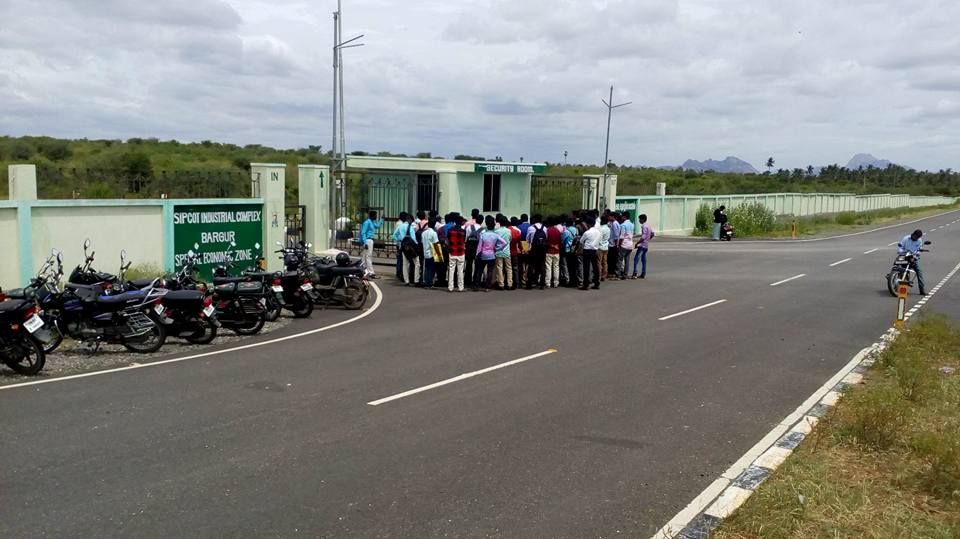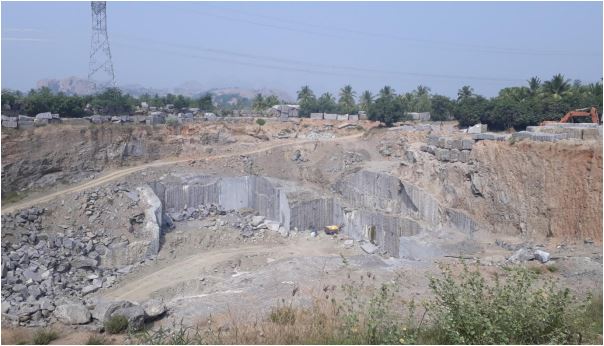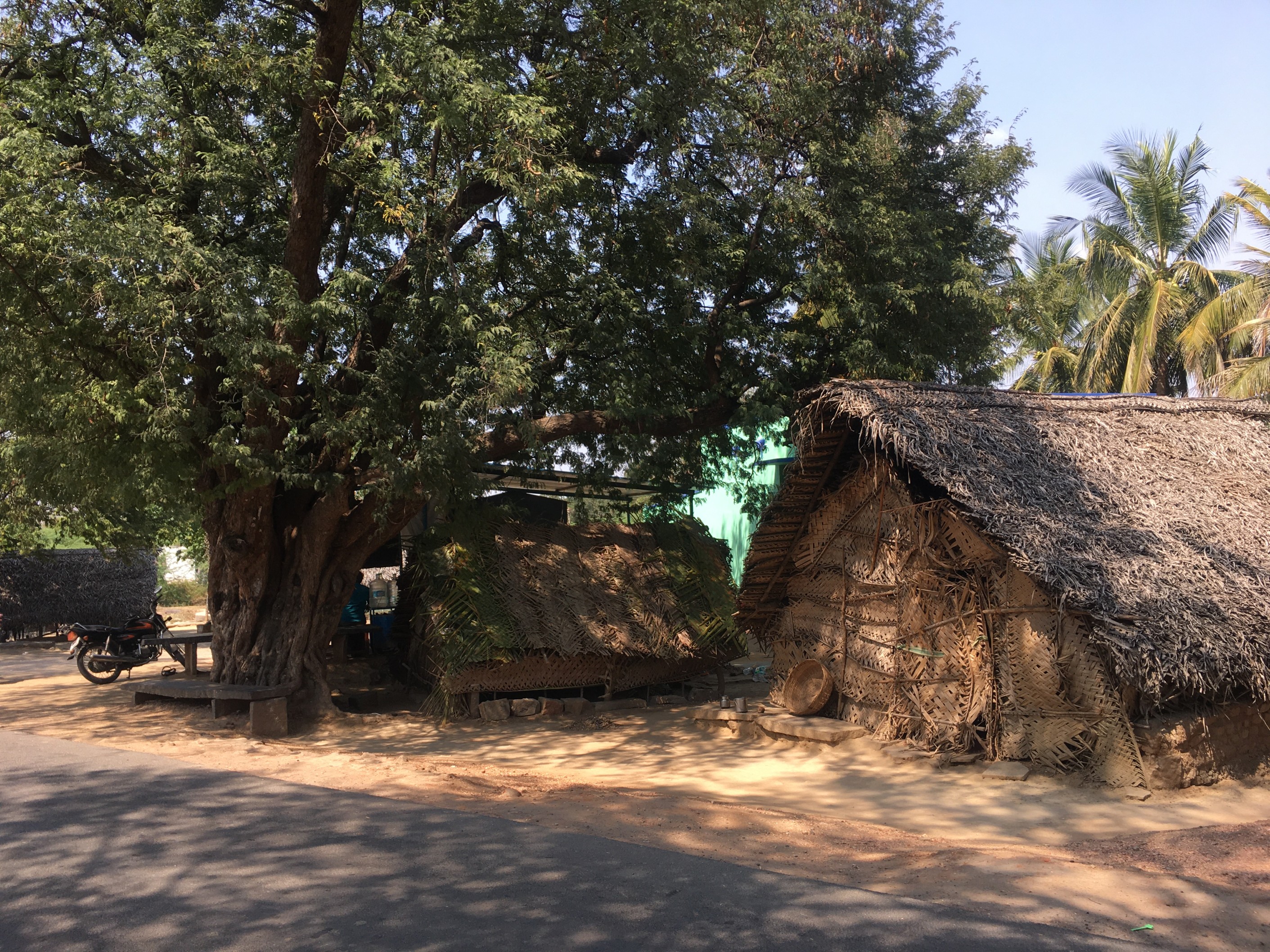
Jaya won from Bargur in '91 to be CM; decades on, villagers see no progress

Parched lakes, large tracts of barren agricultural fields, temporarily brought to life by a few mango plantations, textile shops and granite quarries and stone crushing units abutting hillocks define the Bargur Assembly constituency in Krishnagiri district.
In 1991, J Jayalalithaa contested from Bargur and Kangeyam (Tiruppur district) Assembly constituencies. By securing over 60% of the votes polled in both the seats, Jayalalithaa went on to become the youngest and first woman chief minister of Tamil Nadu. She retained Bargur, a rural backward constituency, and vacated the Kangayam seat.
Soon after she became CM, the government acquired nearly 1,200 acres of barren land in the Bargur region to set up a world-class industrial estate. Industrialists, however, did not show much interest as the area continued to be described as Naxal-hit.
With parched hilly terrain, the areas around Bargur, Kelamangalam, Thally, Uthangarai, Mathur, and Kaveripattinam blocks in the Krishnagiri District remained a concern for the state as industries shunned setting up units due to fear of Naxals.
Even today, the constituency hasn’t seen much progress. Drinking water and irrigation remain a concern for farmers. Several farmers quit agriculture and are unable to sell the parched land.
Also read: AIADMK draws up freebies list, Krishnagiri voters ask of ‘past promises’
Educated youth yearn for better jobs. Degree and diploma students from the region sit idle or work as daily-wagers in the granite blocks, earning ₹300-400 a day. Textile traders say businesses are dwindling and are unable to expand with the lack of financial support from banks. Bargur traditionally remained an AIADMK stronghold. The party won 9 out of 11 Assembly elections held since the 1970s.

After 1971, the only time the party lost to its rival DMK was in the 1996 Assembly polls. Combined with multiple factors, including the anti-incumbency wave, Jayalalithaa failed to retain the Bargur seat. EG Sugavanam of DMK, a pharmacist by profession, won the Bargur seat, defeating the CM. The AIADMK lost power in the state.

However, after the 1996 elections, the voters continued to support AIADMK and remained loyal to the party despite lack of progress in the region. A lingering hope let them support the party, people say. But now, in her absence, the voter seems to see the party differently. The hope seems to have evaporated.
Nagaraj A, a farmer-turned-tiles trader in Gangavaram block says he has 1.5-acre land which remains uncultivated since the late 90s. “It rarely rains here. The lakes and ponds are dry all the time. The party has repeatedly sought votes by promising to bring water, but we haven’t got much in nearly three decades,” says Nagaraj.
Also read: Polls at the door, AIADMK grapples with internal rebellion, desertions of allies
His anger stems from the fact that though the Krishnagiri Reservoir Project lies barely 25 km from his farm, the water availability still remains a distant mirage. With Prime Minister Narendra Modi-led BJP government, an AIADMK ally, treating farmers badly during the recent farm protests, Nagaraj believes that the AIADMK would not be concerned about their woes anymore.
“Modi rode to power promising river-linking projects. What happened to that? As a regional ally, shouldn’t the AIADMK be pushing for the project for the benefit of Tamil Nadu people,” he asks.
After Jayalalithaa’s death, his hopes seem to have vanished. “Had she been there, she would have perhaps tried to get us water. But we don’t believe in the new leaders,” he says.
Sailapathy M, an ex-Army man, says corruption has seeped into this regime so much that he thinks AIADMK will be washed out this election, quickly adding that both DMK and AIADMK are the same when it comes to addressing their water woes.
“After retirement, I wrote an exam and got the job as a village administrative officer (VAO) in 2018. But I quit within two months as I was asked to clear bills only after taking bribes. I quit the job,” Sailapathy says. “It (corruption) wasn’t any different when she was alive.”
A few houses away, Madhaiyan (58) and his wife Aiyamma (50) belonging to the Vanniar community run a small shop. They have been fighting to get ‘patta’ (land ownership document) for the last four decades. Still, she believes that the AIADMK is a better choice considering the freebies announced this season. But her husband is thinking if he should go with the anti-incumbency wave and vote DMK.

Another voter, 35-year-old Balamurugan in Bargur town says he doesn’t know who the AIADMK candidate is this time. “Petrol prices have peaked at ₹ 100, but the state government does not even oppose the Centre. As an election gimmick now they are saying they’ll cut the prices. Can one believe them,” he asks.
In Bargur, AIADMK has fielded Krishnan A against DMK’s Mathiazhagan, a granite businessman.
Though Naxal activities have reduced over the years with stepped-up policing and arrests in the region, industrial development remains a dream.
Amal Das, a 25-year-old diploma holder in electrical and electronics engineering, works as a labourer in the granite factory on ad-hoc basis. He says though there is an industrial area in Pochampalli, about 27 km from Jagadevi where he stays, not many companies are located in the region. “Not more than five persons from my village work in the only shoe factory present there,” he says.
The government is trying to woo industry in the region again. Ola, the app-based taxi-hailing company, has signed a memorandum of understanding with the state government to set up a factory at SIPCOT park in Bargur with an assurance to pump in ₹2,354 crore investment and create employment for nearly 2,200 people.
Though Das sees some hope, he’s still unsure if the company would hire locals. “We do not want the government to give us freebies. Let them give us jobs and we will buy what we want. Job is our priority,” he says.

